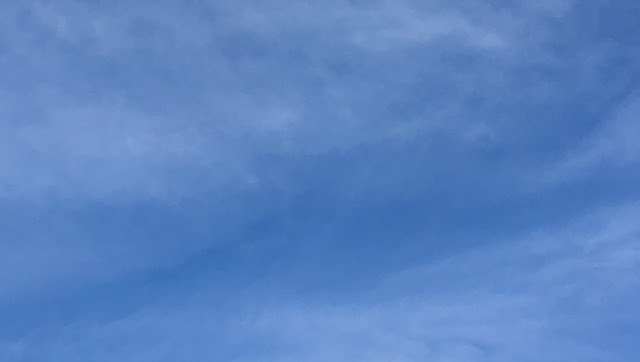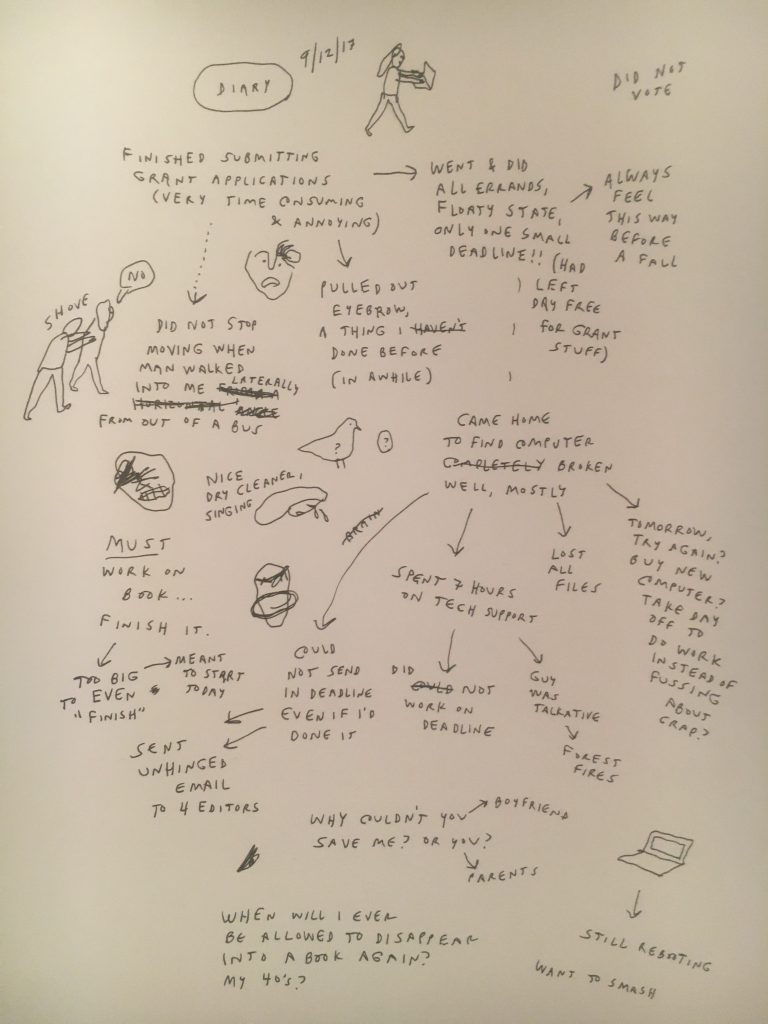Germans: Are They Talking About Us?
Once, I was riding the elevator on the way to a doctor’s appointment, and two young nurses got in. They were part of St. Louis’s large Bosnian population, and as such they were speaking in Bosnian. To each other. Not to me, and sure as shit not to the crotchety lady to my right.
The nurses got out, and the lady turned to me and, sensing some sort of middle-aged-white-woman camaraderie, said: “That’s so rude!” So I said: “Eh?” And then she said: “I hate it when people don’t SPEAK OUR LANGUAGE.”
So I said: “Ich versteh’ dich nicht.” I told her I didn’t understand her (even though I DID), and used the INFORMAL version of “you,” even though she was OLDER than me and that is considered VERY IMPOLITE. I showed her, is what I’m saying.
I don’t have to tell you that there are a shit-ton of people in this country who: a) only speak English; b) still don’t speak it very well; c) and yet get disproportionately bent out of shape when they hear a single fern’ syllable among the general public. This English-only shit is everywhere. And while there is certainly plenty of anti-immigrant sentiment to blame for this country’s bizarre commitment to monolingualism (“We INSIST ON REMAINING NOT SMART!!!”), there’s also another factor at work, and the elevator shit-fit points to exactly what it is. Like, lady, why do you care if two strangers are having a conversation you can’t understand?
I’ll tell you why: She thinks they’re talking about her. Everybody who hears anyone speaking a language they don’t understand assumes that person is doing so in order to talk some uninterrupted shit about all the people around them. And guess what? Sometimes that’s true, and if you don’t like it, you should learn more languages. For example, if you hear me speaking German Stateside and I’m not in a German classroom, I am probably talking about you.
Speaking of which: The entire Germophone world is full of news publications and websites that the average American can’t understand (and that Google Translate can only turn into gibberish). And I’m sure Germany has a press for many reasons (something about a “vote fight” comes to mind), but I bet one of those reasons is to talk smack about us right in front of our faces.
Yep, Germans have a lot to say about all the crazy shit that’s going down here. Shit they don’t really expect us to read. But guess what? I’m gonna.
Grant Hart, 1961-2017
“Grant Hart was a gifted visual artist, a wonderful story teller, and a frighteningly talented musician. Everyone touched by his spirit will always remember.”
A Poem by Carmen Giménez Smith
Ravers Having Babies
I tried to make my babies fall in love with
the surrealists but they only want the acid pastels
of the graphic age so the aesthetic pleasuredome
I had planned for them when
I was just an immigrant’s daughter corralling future
reinvention from every TV set is dead
long live my bohemian fantasy of children lolling
over Proust in hammocks they wove themselves
I’ll try to let their freak flags fly unencumbered
by my own fantastical wants and gather their texts
in my own pronounce their slang
with the accent of a foreigner
to remind them of their source material
We’re at the place where I’m a social hazard
because of everyone suddenly seeing them
thru me I’m still their psychic umbilicus
their status perpetually in flux
Each depiction and turn of a phrase
is under scrutiny and I’m hopelessly set
which means I puzzle I perplex I embarrass
and everyone sees
I’ve always hated inspection myself
And their personalities are starting to be
unchanging like a tattoo and
I remember what that was to feel
doomed in the boundary of self
alongside the crucible of being almost adult
how little mercy lies ahead
My adolescence floats between us too
and that’s the most terrifying specter
that they’ll become the worst of me
I was a frantic and edgy teen
who constructed so many urgencies
so many darknesses and revenge fantasies
like the fantasy of being left alone
the only girl in the world only to set it right
Deep in her own grief my mother cured
me with bowls of rice shiny with butter
or shopping sprees for things
we couldn’t afford
I wish I had known the story of her pain
as it was she stood unflinching
against all the blows
life threw at her and maybe that made me more brave
but it certainly made me afraid of feeling
worn down of showing pain
for fear of infecting my kids with my past
Now I’m trying to undo that story which
is what parents are not supposed to do
make what we lacked their supposed gift
because it creates new lacks so I’m aware
of how I could do better though
I haven’t worked it all out
I’m sure there will be pain
Some nights left alone in dreams
that complicate their mortality with the anxieties
that become plagues later my children wander
into my bed for harbor and I inhale them
in old school want and recall
a more desperate version of myself in love
That woman was all in all hunger
and wanted everything immediately
and without question I wonder where she is now
what quadrant her embargo
I’m only this now! This cavalcade
of brokenness I say flexing my body in the mirror
Saggy tits is the real story and if only I had known
that it would be what arriving was
All this life later through therapy and letting go
and also doing some broken things just
unabashed failure really and missteps finally
I learned that I only ever wanted the long devotion
of family Oh terrible childhood
what tatters you made of me
though you made me a watcher too a scrappy
thing but the breaks are there and vibrate easily
and make me do stupid things I’ll never regret
In seeking love I thought little
of outcome only the reaping I would do
The open windows closed the new solutions
I wish we were layers we could unfurl
as object lesson maybe that’s what a poem is
a flayed skin I can turn into a map
Still broken I have worked hard
so the one thing my children
will remember is that my love felt animal
and even felt pure as light
sometimes complicated and afraid
but throughout their lives there was a thread
pulsing with a light they could call my love
Disparate wants and strangers connected
by blood that’s me now and I’ll take it
Life rollicks past you and its futility
becomes the most apt ontology
despite all I try to do to give it meaning
to assuage the vibration of language in me
still trying to make a story for myself
since my other devotion is the word
and song keeps me fixed to the page
which is the subterranean impulse rippling
through our house pulling me from
the communion of family
During the second pregnancy
I went into what they called false
labor exploding supernova
of urgency that became my only
type of consciousness
the masochist psychonaut I was
but it wasn’t time not for two weeks
though I felt my child becoming
an insistent storm
someone like the now-girl in the room
down the hall and then I felt it when it
would really happen a pull different
than before an awareness of a real
beginning to labor
and to the relationship we would have
and there was an ending because life
would always be linked to death
That was the last time I was certain
must be why I’m recalling it
certain of what I needed to do to retain them
That must have been what love ended up being
in the long run in order for me to use it
Every night while my babies sleep
I’m furled into a ball softened by sugar and weed
trying to solve all our problems with dread until morning
when my babies tarry with TV and time shortens
our telomeres without mercy
My kids are just figuring out they pinned their fortunes
to someone who’s a little messy a little loud
someone who isn’t going to be a rock but more
of a sloop made of mahogany bobbing in the water
They’re coming to terms with my fallibility
I’ll die before identifying a single birdsong in my life
I didn’t make them organic or French yet
I think it’s too late but we’ll live
Ravers having babies was what Jack said
when I told him I was pregnant and
he was only telling me the truth of my life
the way a friend who has walked alongside
your life without judgment tells you the truth
of your life whether I liked it or not children
would change my life is also what he was saying
we were marching in beginning and ending
And now like me my babies turn words
over with native wonder
So much to do so little skin left for transformation
To them the imaginary is still marvel
though each minute inverts them away from me
Carmen Giménez Smith is poetry editor (with Steph Burt) at The Nation and publisher of Noemi Press. She is the author of six collections of poems including Cruel Futures (City Lights, 2018) and Be Recorder (Graywolf Press, 2019). She is a Professor of English at Virginia Tech.
The Poetry Section is edited by Mark Bibbins.
Goldfrapp, "Everything Is Never Enough"
It seems like Goldfrapp’s Silver Eye came out a decade ago but it was actually at the beginning of April, which, given the crawl at which time creeps forward these days, only actually represents the passing of several years. Anyway, here’s a new video from it. You have probably forgotten about Silver Eye at this point, because so many terrible things have happened in the interim, but it is worth going back to, particularly this track. Enjoy.
New York City, September 12, 2017
 ★★★★ The clouds were bluish or the sky was whitish, and the sun made a slow start. Short sleeves were plenty, even on the walk to school. The light stayed thin and sparkly; all the body was comfortable except, eventually, the eyes as the glare kept pushing down. Eventually gold added itself to the ambiguous tones in the sky. Bicyclists were blasting music as they rode by. Someone deep inside the crowded train wanted out at Columbus Circle, and stepping off to clear the way created a choice: the grim re-packing of the car to ride one more stop, or the extra walk along Broadway in the open air and light. The feet barely paused to consider it before momentum carried them up and out.
★★★★ The clouds were bluish or the sky was whitish, and the sun made a slow start. Short sleeves were plenty, even on the walk to school. The light stayed thin and sparkly; all the body was comfortable except, eventually, the eyes as the glare kept pushing down. Eventually gold added itself to the ambiguous tones in the sky. Bicyclists were blasting music as they rode by. Someone deep inside the crowded train wanted out at Columbus Circle, and stepping off to clear the way created a choice: the grim re-packing of the car to ride one more stop, or the extra walk along Broadway in the open air and light. The feet barely paused to consider it before momentum carried them up and out.
Nothing Says "Back To School" Like A Symphony Someone Wrote As Homework

Say you have our dear Austrian friend Mozart, born in the mid-18th century, whose youthful energy and brilliance changed the course of classical music forever, or, well, right up until his untimely death in his early forties. Nearly half a century later, a Frenchman named Georges Bizet would accomplish a very similar feat in even less time. Bizet died of a heart complications when he was only 36 years old, and yet some would argue—me, I would argue, I’m arguing—that his mark on romantic music is just as significant as that of Mozart’s on classical.
Bizet will sound familiar to you, I imagine, because you are familiar with Carmen, the world’s most famous opera of, um, all time. And that really is the main reason to know Bizet: his output, given his short time on our planet, was not all too significant. Which is why it’s been such a delight to rediscover his dominant symphony work, his Symphony No. 1 in C Major. Bizet, however, would hate that I’m bringing this to you. In fact, he might hate that it was even ever published. His Symphony No. 1 was neither published nor played nor even discussed in his life; it came to light nearly 60 years after the composer’s death when his first biographer found it covered in dust amidst other family possessions. Bizet didn’t necessarily hide the symphony. It’s very likely he tucked it away because, seeing as how it was composed when he was only 17 years old, it was most likely homework from his time spent studying at the Paris Conservatoire.
Yumi Zouma, "Half Hour"
Yumi Zouma’s Willowbank is out October 6th, and it is one of two great albums for fall coming soon. (Here’s the other.) Will we make it to October? Will autumn be a thing then? These are questions beyond my ken. The only thing I can tell you about October is that it will be dark. In the meantime, you should probably listen to this, and the previous tracks from Willowbank, while there’s still a little light left, just in case. Enjoy.
New York City, September 11, 2017
 ★★★★★ Children struggled into extra layers on their way out of the building. The new fluorescent green mesh backpack cast translucent shadows in the little patch of sun at the schoolyard’s edge. The sky was whiter than a perfect blue, and the warmth was not able to reach summeriness, even out in the open over pavement, before the breeze chased it off. A surging tide of pedestrians forced an SUV, hoping to beat a light, to jam on its brakes. Indoors was too cold but the shade out the windows was so deep it seemed that must be the actual character of the afternoon. The first step into the true warmth, at the workday’s end, brought a pang of loss and regret for not having been out in it sooner.
★★★★★ Children struggled into extra layers on their way out of the building. The new fluorescent green mesh backpack cast translucent shadows in the little patch of sun at the schoolyard’s edge. The sky was whiter than a perfect blue, and the warmth was not able to reach summeriness, even out in the open over pavement, before the breeze chased it off. A surging tide of pedestrians forced an SUV, hoping to beat a light, to jam on its brakes. Indoors was too cold but the shade out the windows was so deep it seemed that must be the actual character of the afternoon. The first step into the true warmth, at the workday’s end, brought a pang of loss and regret for not having been out in it sooner.
Weatherman

Image: Emily via Flickr
When you see me broadcasting live from the South Shore seawall you think, that poorsonofabitch. The snow lashes me horizontally. My words are thin puffs of breath stripped slashed away by the wind. Snowflakes alternate with slivers of sleet and peck my cheeks with a near digital hiss.
You think, I wonder what he does during the commercials.
Red and white numerals dance at the bottom of your tv screen indicating temperature, air pressure, and wind speed; there’s also a clip-art snowflake, cheerful and blue. But you don’t understand the numbers until somebody actually experiences that weather, so you stay in your chair, cozy with hot cocoa and pretzels. On one side of the screen, the storm pummels me; on the other side, stylized magnetic snowflakes ascend a stylized map of the state.
I’m a weatherman, but actually, I never predict, I’m the rugged correspondent, I get out of bed when the network calls, I don’t sit around and primp, I go. Very often I wear jeans. Weather happens, then I work, not the other way around. I don’t know how to predict anything, so don’t blame me if the sky clouds over your Sunday afternoon sail; I do know what a story is, which means I’m never wrong about the weather. People don’t hate me or make jokes about me, because I don’t represent to them the scientific sorcery of meteorology, trying to create order where it’s impossible. My wife, Carolyn, says I’m likeable because I have a sympathetic face. I like to think it’s more certain, my face, which is a geological kind of face, all its parts anchored together and slow to move, stable.
My network sends me towards disastrous weather and sometimes right into it, and in the thickness of the event and during the lulls and then afterwards, I interview the locals. I touch the human story at the center of the universe—that’s the reason, or so I tell Carolyn, for my popularity.

